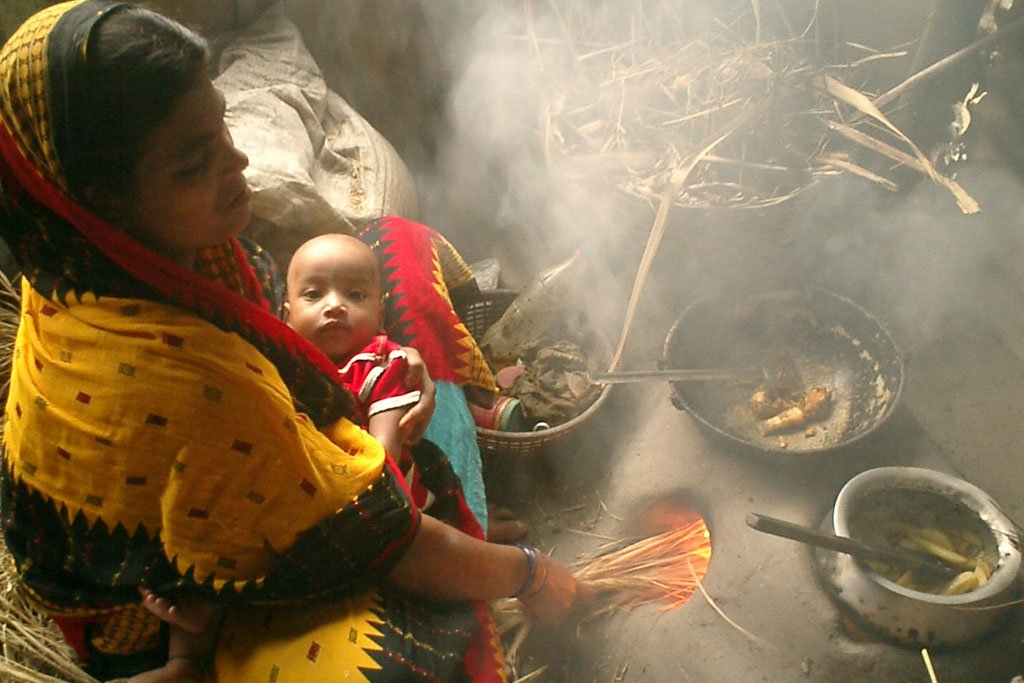Trending:
Unpaid labour of Indian women gets political attention
During a recent election rally, Congress leader Rahul Gandhi spoke about the plight of women who engage in unpaid labour for at least eight hours daily.- New Delhi - UPDATED: April 25, 2024, 06:16 PM - 2 min read

Congress leader Rahul Gandhi during Bharat Jodo Yatra - File Photo
In India, women in the working age category of 15 to 60 years spend 7.2 years on unpaid domestic labour compared to 2.8 hours spent by men, indicating they have "time poverty."
This observation was made by research conducted by a professor from the Indian Institute of Management Ahmedabad in 2023.
According to a study by the Institute of Social Sciences, New Delhi and the Rosa Luxemburg Stiftung, conducted across four regions of three states (Tamil Nadu, Uttarakhand and Delhi), unpaid work is a huge burden on women workers – affecting their health and their ability to secure their rights.

Even wage-earning women spend twice the amount of time on unpaid domestic work compared to wage-earning men to fulfil basic household needs such as cleaning, cooking meals, and caregiving, according to research based on the Time Use Survey (TUS) of the National Sample Survey Office (NSSO).
Moreover, women are 24% less likely to have less leisure time than men.
According to a 2023 report by the State Bank of India, if all women doing household chores for their families were paid for their jobs, the amount paid to them would be equivalent to about 7.5 per cent of India's GDP.
While numerous such studies have been conducted over the years highlighting the wage discrepancies between men and women and the amount of time women spend on unpaid labour, little political emphasis has been placed on them.
In its manifesto for the Lok Sabha elections 2024, Congress unveiled the Mahalakshmi Scheme, which will provide Rs 1 lakh per year to women to alleviate poverty.
During a recent election rally, Congress leader Rahul Gandhi spoke about the plight of women who engage in unpaid labour for at least eight hours daily.
"Women work for 8 hours in homes, for which no govt pays them".
— Kaushik Raj (@kaushikrj6) April 25, 2024
Rahul Gandhi is probably the first Indian politician to talk about unpaid labour of women in households. Obviously, TV media won't cover this. pic.twitter.com/numaiLdVdE
"When you work a job for 8-10 hours, both men and women get paid, right? But in this country, every woman works 8 hours outside the home and 8 hours inside the home. She cooks food, takes care of the family, cleans the house, and ensures the future of the country, yet she only gets paid for eight hours. She doesn't get paid for the eight hours she spends on household work. Until now, no government has recognised women's efforts in household work and unpaid labour. No government has paid women for their labour in the house. This is the reality of India," Rahul Gandhi said.
Many hailed Rahul Gandhi’s speech as “radical” and noted that perhaps this is the first time a political party has highlighted and spoken about women’s unpaid labour in India at such a big gathering.
The Mahalaxmi scheme, which aims to provide Rs 1 lakh every year to poor women, and the right to apprenticeship, which aims to enable graduates and diploma holders to get a one-year job as apprentices and provide Rs 1 lakh in their bank accounts, will change the face of this country and crores of 'lakhpatis.'
Also Read: Caste census is Cong's priority after forming govt, no force can stop it: Rahul Gandhi
Gandhi said that after the end of the one-year apprenticeship, India would have a trained and skilled workforce.
Priyanka Gandhi also tore into the "mangalsutra" remark made by Prime Minister Narendra Modi, saying that the ruling party, BJP and its leaders do not understand the struggles of women in India.
"These people (BJP) cannot understand the struggle of women. The spirit of service that resides in the hearts of women is the foundation of all the traditions of our country. It's that spirit of service that a woman won't rest until everyone in her household is cared for. When a woman faces difficulties in her family or a shortage of money, she will pledge her jewellery. She may sleep hungry but won't let anyone else sleep hungry. Her struggle is something these people don't understand," Gandhi said in a scathing speech.
These remarks from senior Congress party leaders indicate that the struggles of women in India are being highlighted and discussed.
The burden of unpaid work falls disproportionately on women in India because tasks such as cooking, cleaning, fetching water and firewood are highly gendered, and patriarchal norms dictate that women also perform care work, validating men’s failure to assume domestic responsibilities and thus entrenching women’s unequal social status.
India’s last ‘Time Use Survey’ was conducted in 1998-99; no similar exercise has been conducted. Fixing this will be the first step in understanding and correctly addressing the issue of women’s unpaid work.
Unfortunately, the household has long been a task that has been relegated to women. But if women around the world were paid for all the household work they do, even if they are not part of the formal workforce, $10.8 trillion is the estimated value of unpaid labour attributable to women globally, and this includes things like household chores, childcare and caring for the elderly.
It is indeed a matter of delight that politicians are recognising the hidden labour of women, which families and society often overlook, and that steps are being taken to address the issue.
